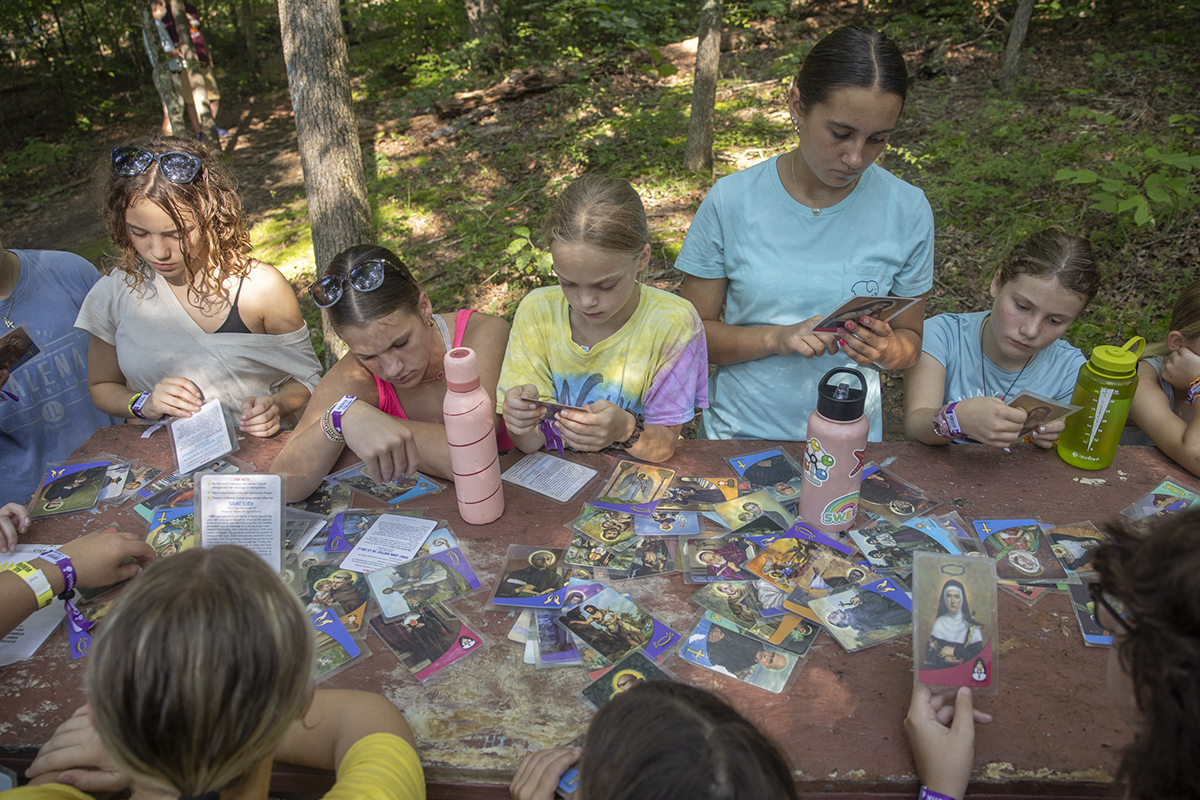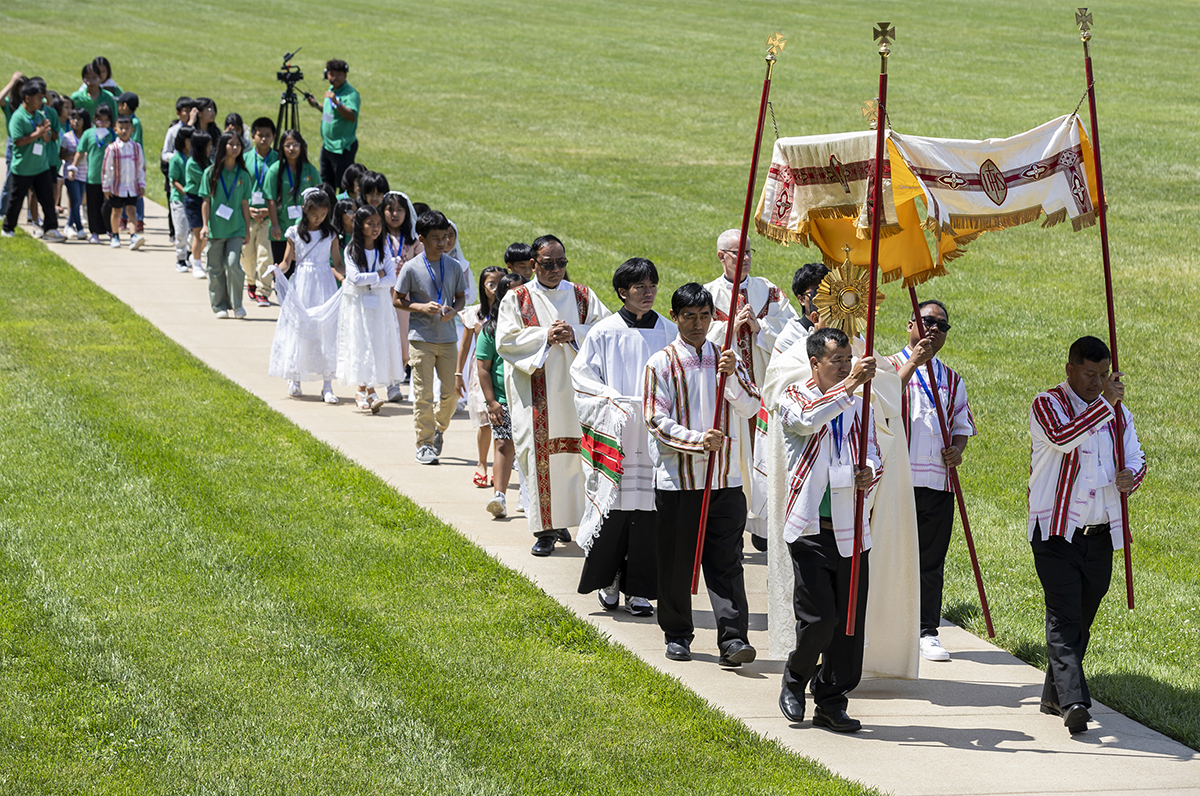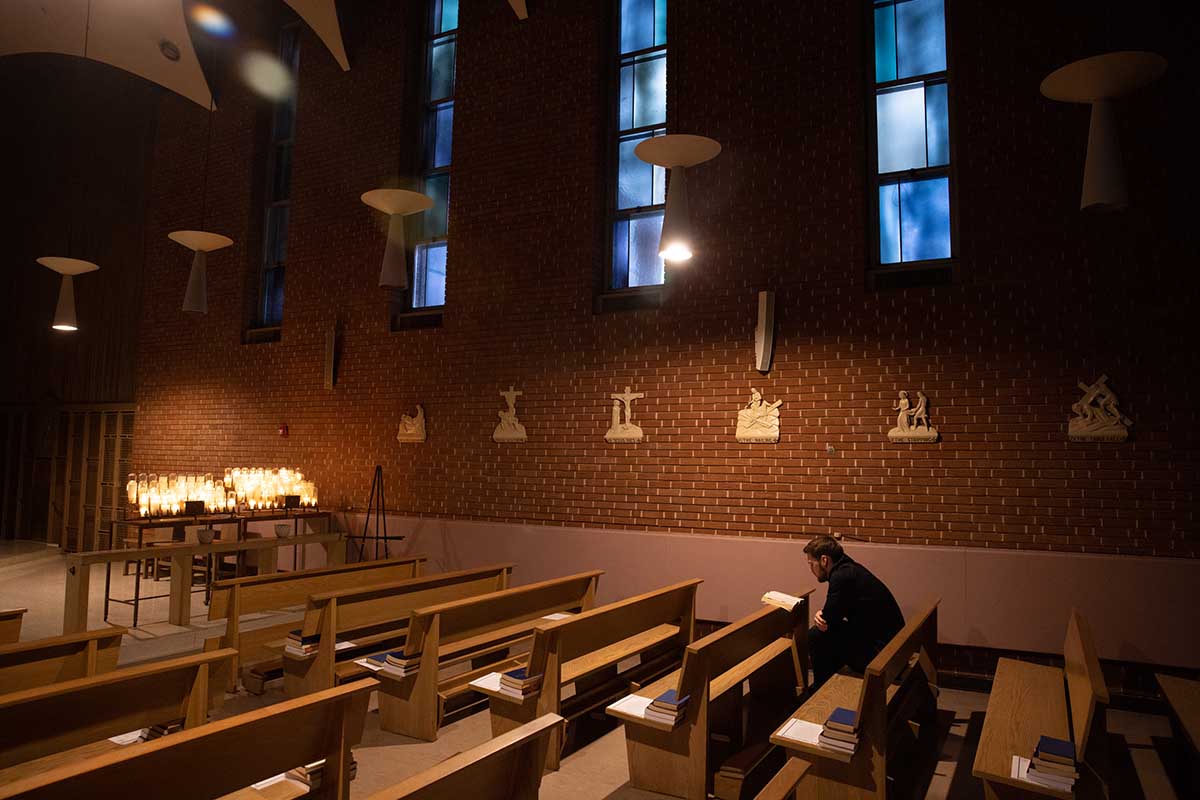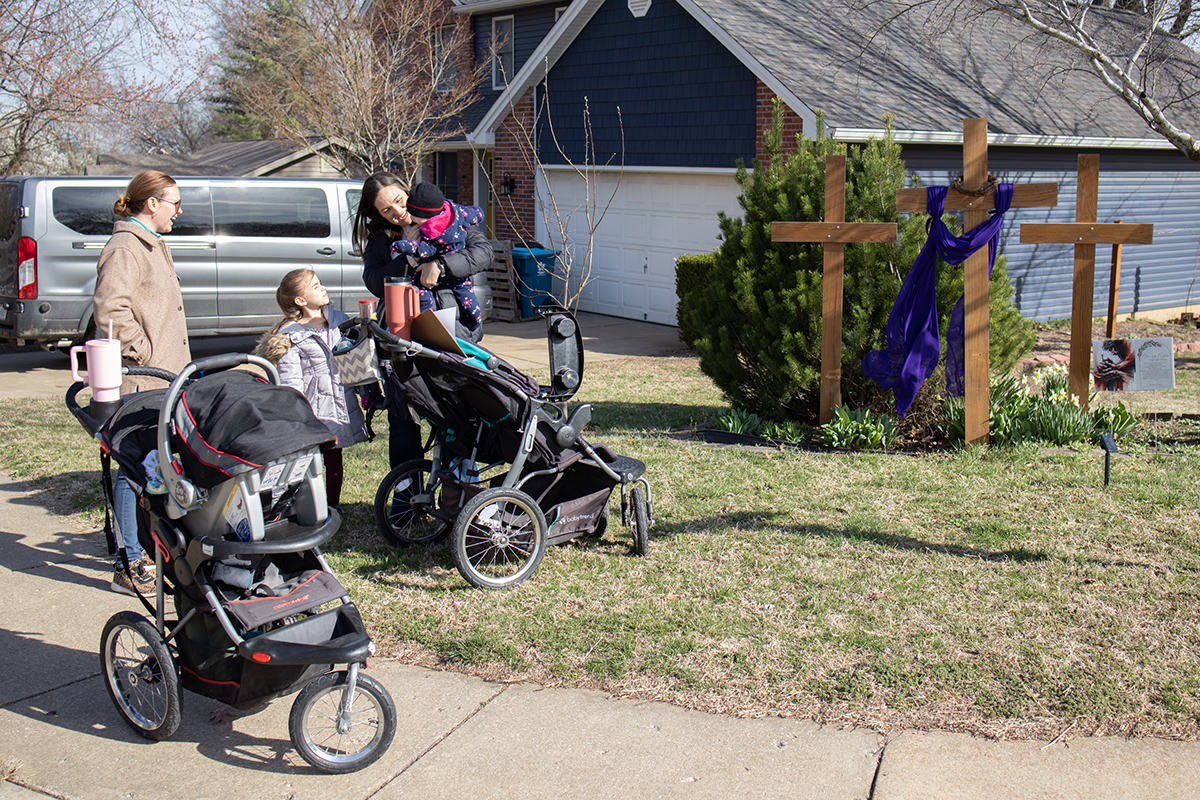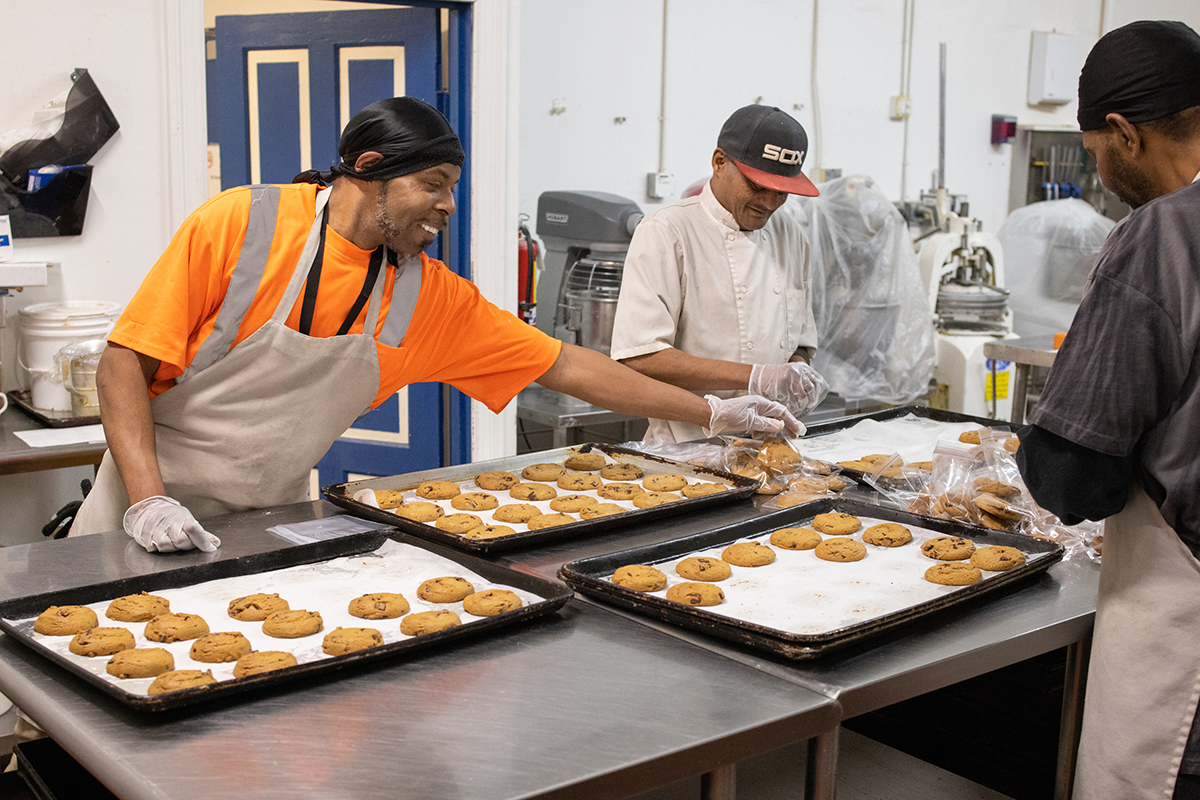Whistle-blowers: Officials mix love of the game, ministry
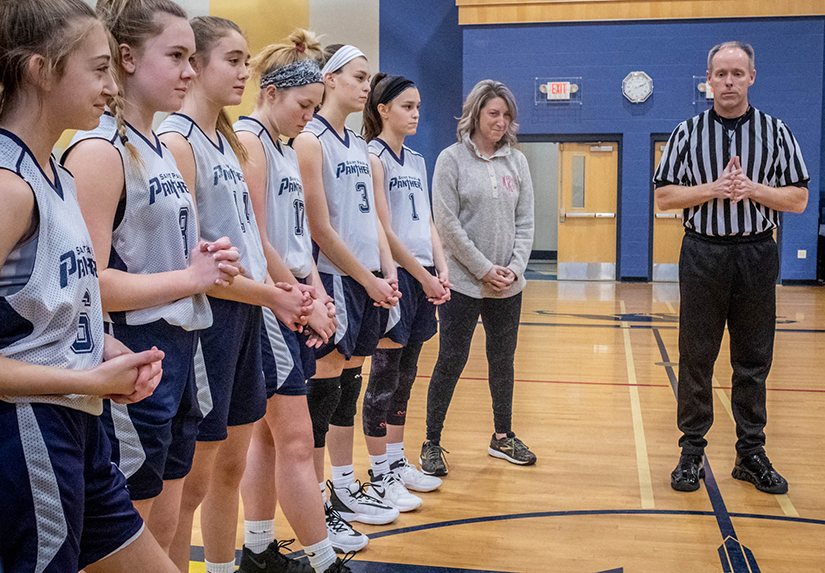
CYC referees work to provide a good experience for players
Tony Davis and Ryan Brandt hustled up and down the basketball court at Assumption Parish in south St. Louis County. They blew their whistles, twirled their arms to signal traveling, pumped their arms to indicate a double dribble, called fouls and more.
There was no unsportsmanlike conduct or technical fouls during the game, nor any gripes from coaches or players. Spectators applauded good plays and never disputed close calls.
Similar results came from a game the next day between eighth-grade girls at St. Paul Parish in Fenton and St. Peter Parish in Kirkwood refereed by John Diffley and Tony Egan.
The number of officials is decreasing across the country; the majority of referees are in the older age categories. The Missouri State High School Activities Association reported last year that for high school basketball, for example, only 8% of referees were under age 29; 52% were age 50 or older, and 19% are 60 or older. Archdiocesan Catholic Youth Apostolate staff say that trend is similar among CYC referees.
Faith at the forefront
Davis started umpiring in the Catholic Youth Apostolate’s CYC sports program at age 13 beginning at St. Anthony of Padua Parish and then St. John the Baptist Parish, both in St. Louis. He stopped refereeing in college and picked it up again as an adult at
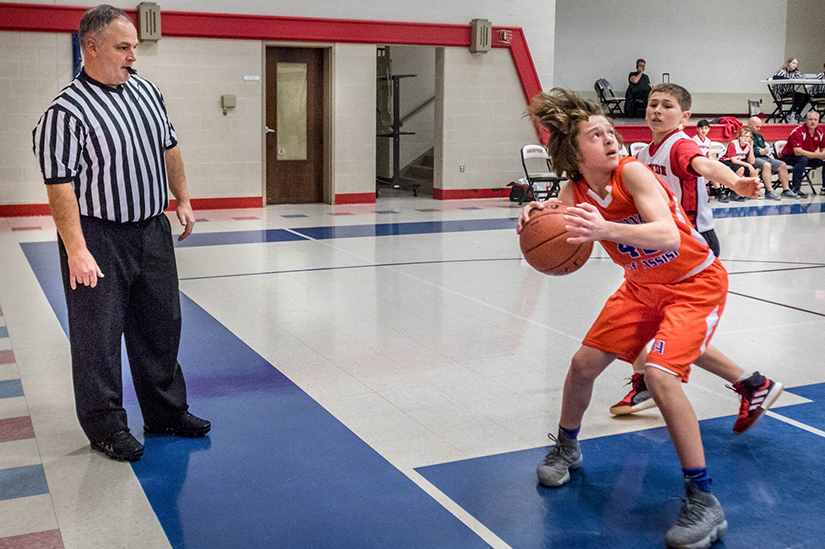
Assumption Parish in south St. Louis County.
He’s been doing it steadily for about 20 years, serving as head official at his parish, Assumption, and at Mary Mother of the Church Parish’s gym. His duties include scheduling referees.
Davis recruits athletic youths, telling them they have the potential to be good refs. That happened to him, and he’s enjoyed it ever since.
He tries to see that basketball is played according to the rules. “I like giving back to the kids. It’s just a hobby of mine,” he said.
Faith is at the forefront of everything in the CYC, Davis said. Players, coaches and referees pray before games. In one day, he may pray five times with children of various age groups — he looks forward to it.
His Catholic faith, he said, helps provide a calm demeanor on the court even when emotions run high.
It’s difficult to keep officials coming back, especially when they’re just beginning and subject to criticism from spectators or participants, Davis said. The previous week, he had three young refs making their debut.
“If people want officials to be around, they need to back off and realize that things are going to happen,” said Davis, who spends his weekdays as director of tax for World Wide Technology.
Being a game official is a good thing for young people because it builds confidence and communication skills, he noted. “You can apply that in any area of life.”
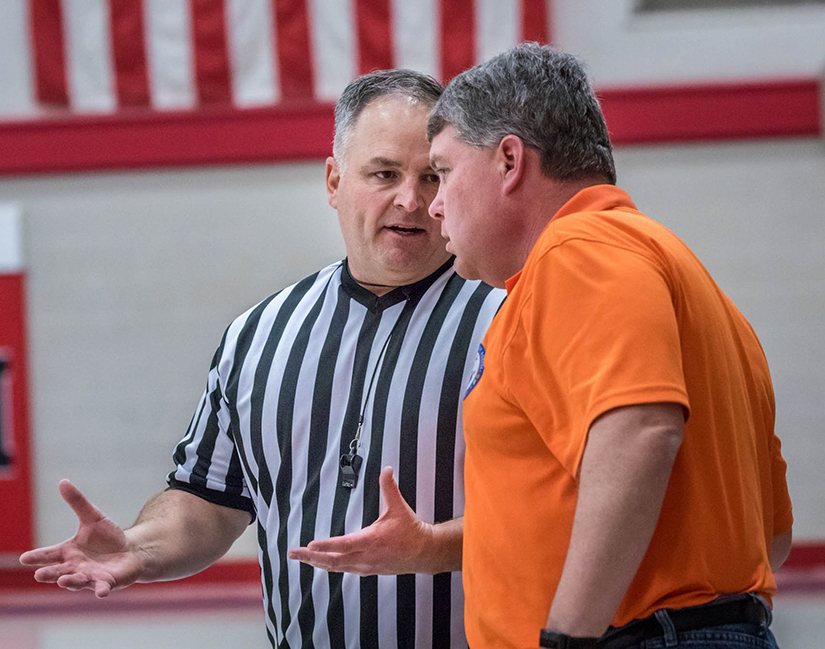
Rewards and challenges
Diffley coaches high school football and track and found refereeing basketball games is a way to keep active in between those sports seasons while making a little cash.
He’d always seen the importance of the rules and understanding the game, so at age 25 he took up the ref’s whistle and striped shirt. He teaches at North Technical High School during the week.
The rewards of refereeing, he said, include enjoying the camaraderie with the other refs, having a good seat for basketball games, seeing children improve as players and forming relationships with coaches and others.
Diffley urges young people to check into officiating. It develops personality, confidence, decision-making ability, ability to handle pressure and people skills, all important for their adult lives.
While the vast majority of games go without complaint, it’s a little challenging dealing with people who see one perspective, he explained. “We as officials have an objective point of view, while fans have a subjective point of view,” Diffley said.
Television tends to glorify coaches, players and even announcers who are vocal with officials, so adults and children tend to emulate that, he said.
A St. Paul in Fenton parishioner, he said his faith teaches forgiveness, and as a game official he leans on that. “As officials, we have to forgive those emotional outbursts. In the heat of the moment, you have to have a patient whistle and patiently listen to coaches and players as they plead their case.”
In the CYC, he said, some coaches have their players thank the officials. “That’s a really big deal. The coaches convey to their players that if these folks (officials) didn’t give up their time, they wouldn’t be playing a game,” he said.
Respect
The CYC focuses on coaching and refereeing as a ministry. A shortage of officials is seen in all of the CYC sports and in high school sports in the St. Louis area, according to Dan Fitzgerald, director of the CYC, and Mark Probst, executive secretary of the St. Louis Suburban Public High School Conference and assigner of officials for the CYC.
Probst said that in addition to the issue of fewer young officials, current officials are not working as many times a week as in the past. Today, in most households, both parents work and most officials can work games only one or two days per week, he said.
In the CYC, Fitzgerald said, refereeing is convenient because refs work at their home parish. They take an online test and go to a clinic, which is offered in four geographic areas.
The CYC works with coaches to ensure they treat officials with respect and for coaches to reach out to spectators and monitor their behavior at games. Probst said officials are trained to communicate with coaches, players and each other.
“Most of our games go smoothly,” Fitzgerald said. “Players and parents have fun. I went to four games last Saturday in a couple of different gyms and there weren’t problems in any of them.”
Both teams pray together, especially when they do it close to the stands, which sets a good tone.
Kari Baker, who attended her daughter Josie’s game against St. Paul, said CYC sports is about the love of the game, sportsmanship, teamwork and keeping children active. “It’s about having fun,” she said.
The referees, Baker said, “are extremely important. They’re doing it for the love of the sport as well.”
Michelle Hancock, coach of the St. Paul team, said she appreciates the referees because they look out for the players’ safety, keep control of the game in a nonbiased manner and teach about the rules and proper way to play the game.
Jeff Kesselring, co-coach of the St. Francis team, said “the referees are great. They give up their time when there’s so many other things they could do. A lot of them are really good at their craft.”
>> Advice from the referees
For coaches, players and especially fans:
• It’s a game. Don’t let your emotions get in the way.
• Officials can’t see everything or may have a different angle than you have, so cut them some slack. Mistakes sometimes happen. They’re trying hard and want to be fair.
• Watch as a fan of the game, not as a fan of your child or his or her team.
• Remember, officials are trained to be neutral about who wins or loses a game.
• Some officials are learning the game as well — they won’t be perfect right away.
• Fans should let coaches, who are trained in procedures, handle issues during the game.
>> CYC officiating
Last year, 580 officials went through training with the Catholic Youth Apostolate’s CYC sports program. The nine-sport program serves more than 50,000 youth and young adults in St. Louis. Officiating high school games seldom conflict with CYC games, and many officials work on both levels. Nearly 20 officials who started in the CYC have officiated at Missouri State High School Activities Association playoffs. Some also have worked college games.
The CYC program is unique because of its focus on faith, sportsmanship and service. It recruits officials by pointing out that they have a positive impact on young players, give back to sports they enjoy, get exercise, get paid for helping children learn to play the game the right way and are part of a community with camaraderie and friendships.
Steps to become a CYC official involve contacting your local parish athletic association, joining the CYC Officials Association and attend training. For information, visit playcyc.org/officiate.
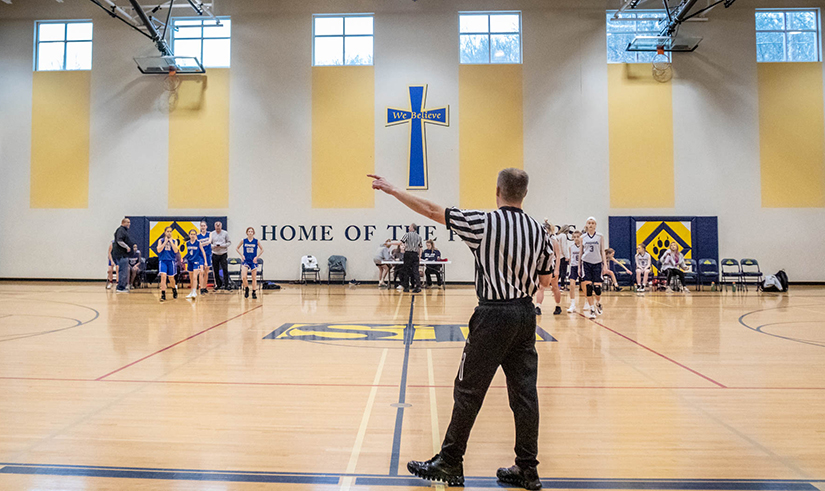
Tony Davis and Ryan Brandt hustled up and down the basketball court at Assumption Parish in south St. Louis County. They blew their whistles, twirled their arms to signal traveling, … Whistle-blowers: Officials mix love of the game, ministry
Subscribe to Read All St. Louis Review Stories
All readers receive 5 stories to read free per month. After that, readers will need to be logged in.
If you are currently receive the St. Louis Review at your home or office, please send your name and address (and subscriber id if you know it) to subscriptions@stlouisreview.com to get your login information.
If you are not currently a subscriber to the St. Louis Review, please contact subscriptions@stlouisreview.com for information on how to subscribe.



